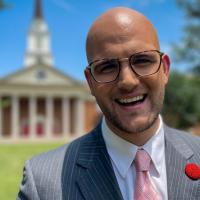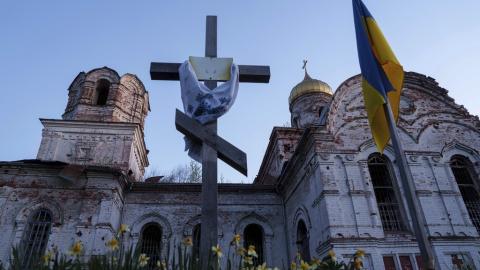Juneteenth: A Dive into the Biblical Roots of America's Newest Federal Holiday
Juneteenth dates to the Civil War, when almost 750,000 soldiers died – either fighting for freedom or to preserve the institution of slavery. And Juneteenth was just the beginning of progress. New York Times bestselling author Dr. Jemar Tisby says knowing and acknowledging the history paints a complete picture of what freedom is in America.
"We learn about the civil rights movement, but it gets reduced to Rosa Parks and the 'I Have a Dream' speech and maybe the Civil Rights Act," said Tisby. "That's almost the basic idea most people have of U.S. racial history."
Tisby is a historian who told CBN News that many important race-related events have been omitted from American history – like Juneteenth. Most history books don't even mention the name, which is why he's on a mission to reeducate the public about the day freedom finally came to all Americans.
"It represents June 19th, 1865, when enslaved people in Texas first learned of their emancipation," said Dr. Tisby. "Major General Granger of the Union Army came to Texas and issued General Order #3, in that he said, 'all l enslaved people of Texas are free.'"
At the time, Texas was the farthest state West and the last to hear of freedom more than two years after President Lincoln's Emancipation Proclamation. As the news spread, the shock for some 250,000 enslaved Texans quickly turned to celebration. Juneteenth combines the words 'June' and 'Nineteenth,' but according to Tisby, it was originally referred to as Jubilee Day – a biblical reference to the book of Leviticus, which tells the story of how the Israelites celebrated their freedom from slavery in Egypt. Faith formed the foundation of what would become America's most recent federal holiday.
"It was almost a carnival-like environment, always ministers preaching about the importance of Juneteenth and the importance of freedom," said Dr. Cassandra Newby-Alexander, Professor of History at Norfolk State University
Yet the freedom given to black Americans was overshadowed and even replaced by the rise of race-based segregation known as the Jim Crow Laws. Newby-Alexander says the holiday commemorations were forced underground as those laws ruled for nearly a century.
"Because black people, even after emancipation, were often segregated and not allowed to gather in many public spaces, many celebrations of Juneteenth occurred at churches," she said.
Tisby agrees, sharing how Juneteenth was hidden from the public.
"In that era, you have lynchings and the rise of race-based segregation," said Tisby. "For many who didn't want the Confederacy to lose, it was not a cause for celebration it was not something they wanted to highlight. And for a long time – particularly in the Jim Crow Era – the field of history was dominated by white men who looked from a certain perspective and would not have spent much time on Juneteenth."
However, black Americans saw incredible progress during the 1960s with the Civil Rights Act of 1964, the 1965 Voting Rights Act, and the Fair Housing Act in 1968. Still, black people continued to face an uphill battle in the fight for equality.
"Why are black people and other people of color still experiencing discrimination and inequality after the gains of the civil rights movement?" asked Tisby. He says this is a college-level question sought in most law degree courses highlighting critical race theory.
As society, including historians, politicians, and religious leaders seek to address the unanswered questions about race still lingering today, Dr. Tisby believes the church has an opportunity to lead and be an example in the 21st century.
"I think the church can make incredible progress if we understand that racism is both individual and institutional. It's both interpersonal and systemic. We need to both change hearts and change policies. That's really the charge for the church around race today." said Tisby.
As for Juneteenth, it's not only a day to learn about history and celebrate with food, friends, and family; it's also a day to commemorate, remember, and lament.
"We have to embrace the pain, the shame, the anger – all of that collectively in order for us to be a single nation," said Dr. Newby-Alexander. "July 4th will have more meaning when Juneteenth becomes part of how we tell that story of freedom in America."
Tisby offers some concrete ways the church can be a guiding light in the fight for racial justice: First, he says, by being aware of injustice. Second, by building community relationships with businesses, churches, and people different from you. Finally, you can make a commitment to finding solutions to the problems that still overshadow people of color – all based on the biblical mandate to love our neighbors as ourselves.
"But we have every resource in ourselves and the Holy Spirit – to look at ourselves and our nation and say 'we got it wrong, and some ways still getting it wrong,'" Tisby said. "That's okay, we don't have to be defined by our past. As a matter of fact, when we confess it and when are truthful of it – that's when healing begins."





